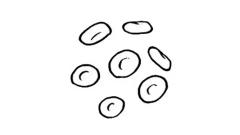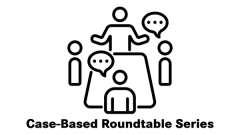
Approved Therapies Considered for Patients With Graft-Vs-Host Disease
Noah M. Merin, MD, PhD, discusses approved therapies in acute and chronic graft-vs-host disease.
Episodes in this series

Noah M. Merin, MD, PhD, assistant professor at Cedars-Sinai Medicine and medical director of the Hematology and Cellular Therapy Disease Research Group at the Cedars-Sinai Cancer Institute, discusses approved therapies in acute and chronic graft-vs-host disease (GVHD) in a live virtual event.
The National Comprehensive Cancer Network (NCCN) guidelines have suggested agents for patients with steroid-refractory GVHD, and Merin says choices are mainly based on route of administration, ease of use, and adverse event profiles. Many drugs are listed as both acute and chronic GVHD options in the NCCN guidelines, but are not used as often following the approval of oral therapies such as ruxolitinib (Jakafi), ibrutinib (Imbruvica), and belumosudil (Rezurock).
Some less commonly used drugs can still be helpful in certain situations, according to Merin. This includes infliximab (Remicade) for acute diarrhea and mycophenolate mofetil (CellCept) for patients with GVHD presenting in the liver.
TRANSCRIPTION
0:10 | Anything that will suppress your B cells and T cells will have an effect on GVHD. So the choice is usually about the route of administration, the ease that the patient is going to be able to get the therapy, and then the [adverse event] profile. So I wouldn't use Campath, or alemtuzumab, for GVHD because it will cause a profound T-cell immunocompromised state. So [the NCCN provides] an alphabetical list, but most of these drugs have fallen by the wayside with the development of effective oral GVHD therapy.
0:45 | Ruxolitinib is used for both acute and for chronic GVHD and has category 1 indications for both. Most of the stuff on [the list, such as] ATG [anti-thymocyte globulin] or basiliximab [Simulect], are too intense, too potent. I generally don't reintroduce calcineurin inhibitors if patients have developed GVHD after 6 months. Infliximab requires some—should be highlighted for patients that have acute diarrhea. This is a drug that's borrowed from inflammatory bowel disease. Patients [who] have severe colon GVHD and liver GVHD can have very remarkable responses to infliximab. Mycophenolate is good for liver GVHD. It's a mild immunosuppressant. It can be continued for a long time. I haven't used pentostatin (Nipent) or tocilizumab (Actemra) to try to manage chronic GVHD or acute GVHD.
1:43 | On the chronic GVHD side, ruxolitinib can be used if a patient wasn't [experiencing progression] on it in the past. Ibrutinib is approved for chronic GVHD, and belumosudil was approved a couple of years ago.













































